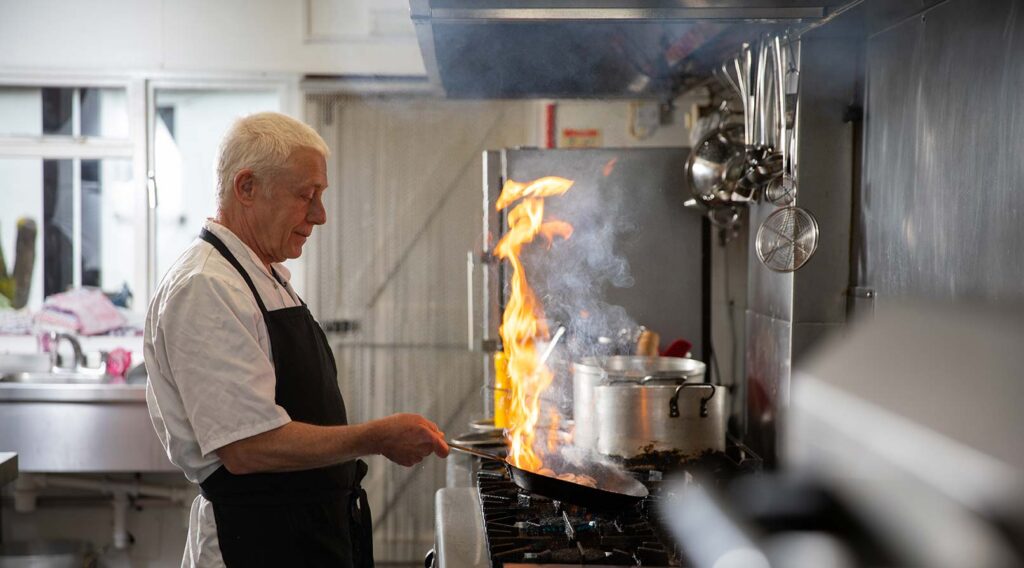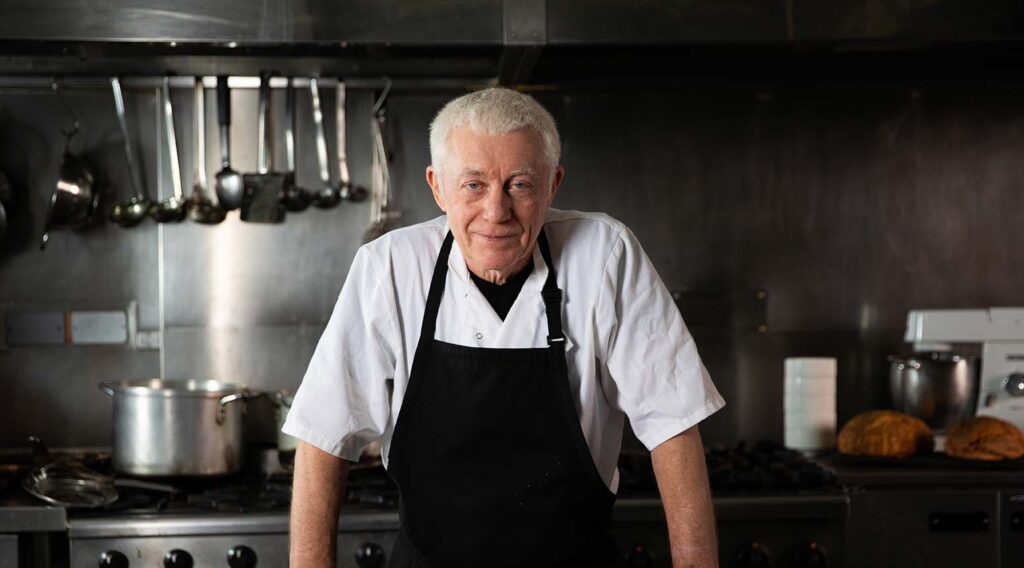Joining the Army at the young age of 17, Steve had no idea he was gay. On joining he had to complete full military training within the Gloucestershire regiment. This was to ensure full capability of military duties, as well as being a member of the regimental band. While a member of this band he went on to take part in the ceremonial duties for the Queen’s Silver Jubilee including Trooping the Colour and the musical pageant at Wembley Stadium, playing alongside 2,000 other military musicians. At the age of 18 he was posted to Northern Ireland and given the opportunity to attend the Royal Military School of Music. The atmosphere there was more relaxed with less exposure to stereotypical military behaviours . There was some comfort being surrounded by musically-minded individuals. The hope was to one day return as a Band Master.

At the end of his course, Steve was posted back to his regiment in Germany. It became immediately apparent that the culture was different. He became more reclusive and was in constant fear that his homosexuality would be discovered. While in Germany, he met an individual who he began to spend a lot of time with. This individual introduced him to other homosexual soldiers and they would often meet socially. Steve was unaware that these other soldiers were under investigation at that time. The investigations into these soldiers led to media attention that sparked further investigations in an attempt to mitigate further exposure.

The social connections between these homosexual, or perceived-to-be homosexual personnel, combined with the initial News of the World article ‘TROOPS ARE SHAMED BY WEB OF VICE’, led to Steve and his then partner being investigated and arrested by the Special Investigations Branch of the Military Police.
“I was arrested by the SIB and interviewed on several occasions and had to divulge information relating to my sex life. All of my personal belongings were searched for evidence. Pressure was also applied to reveal names of other gay servicemen.” The hearing of the commanding officer took place and Steve was detained in the guard room while being subject to abuse and threats from other soldiers. A court martial took place in Germany resulting in a ‘discharge in disgrace’ and a six-month prison sentence with immediate transferral to Colchester prison. Details of the ‘offences’ were read out in front of the court.
Both men were extensively questioned and made to provide extremely personal and specific details of any interactions they had during their relationship. A humiliating and harrowing experience was soon magnified by the presence of another News of the World journalist who named Steve in a front-page article the next day titled ‘The Gay Glosters’.
“I had to make a phone call to my parents as I did not want them to find out that way… We were discharged in disgrace and sentenced to six months at Colchester. At Colchester, although I was not physically harmed, the whole process was very mentally disturbing, we were constantly monitored, including overnight.”
There was however a basis for appeal as the defending male officer and the prosecuting female officer were romantically linked. Due to the negative publicity this would cause for the Army, Steve and his partner were released after spending eight weeks in prison. Post-release there was a breakdown in his relationship with his partner and although his family were accepting, he knew he had not only lost a career he loved, but someone who he thought he loved as well.
“When I left Colchester, I spent a few days in London with the person that I was sentenced with. I hoped that we would go on to live together. I returned to my parents’ house, they were welcoming and understanding, however my partner did not join me. I was devastated and alone with no prospects, having to sign on for unemployment benefit and explain why I had lost my job. I went through a period of heavy drinking and gambling. Going out late into the night and sometimes not returning home for a few days.”

Adjusting to civilian life was difficult, his sister helped him get him a job as a hospital porter, but he found it difficult to settle into any particular role. This was the 80s and experiences of homophobia were commonplace.
Since his experience, Steve has managed to build a life in the remote and beautiful area of Mamhilad between Pontypool and Abergavenny South Wales. He met his partner of 40 years and they run a successful, inclusive business together which overlooks lush Welsh fields, often filled with baby lambs. He and his partner have been actively involved throughout their lives in supporting those in the LGBTQ+ community. Although managing to successfully navigate life while being impacted by the ban, he emphasises the importance of the voice this review gives others that were not so fortunate.
“We have been together for nearly 40 years. I have worked hard to improve my life and we now run our own business, so I know I am better off than some of the other soldiers who went through this process of degradation and humiliation. I am adding my voice so that others can be heard. One of my friends from the Army who was arrested after I had left was also discharged by court martial. He unfortunately caught HIV and went on to die of AIDS. Another took his own life because he could not live with the thought of what could happen.”
Steve went through a journey of acceptance to discover himself. It took years to “clear the debris out” from his head and he felt he was an angry person for a long time. Seeing Dame Kelly Holmes talk about her story as a gay woman in the Army prompted him to take part in the Call for Evidence, and also inspired him to tell his story.

